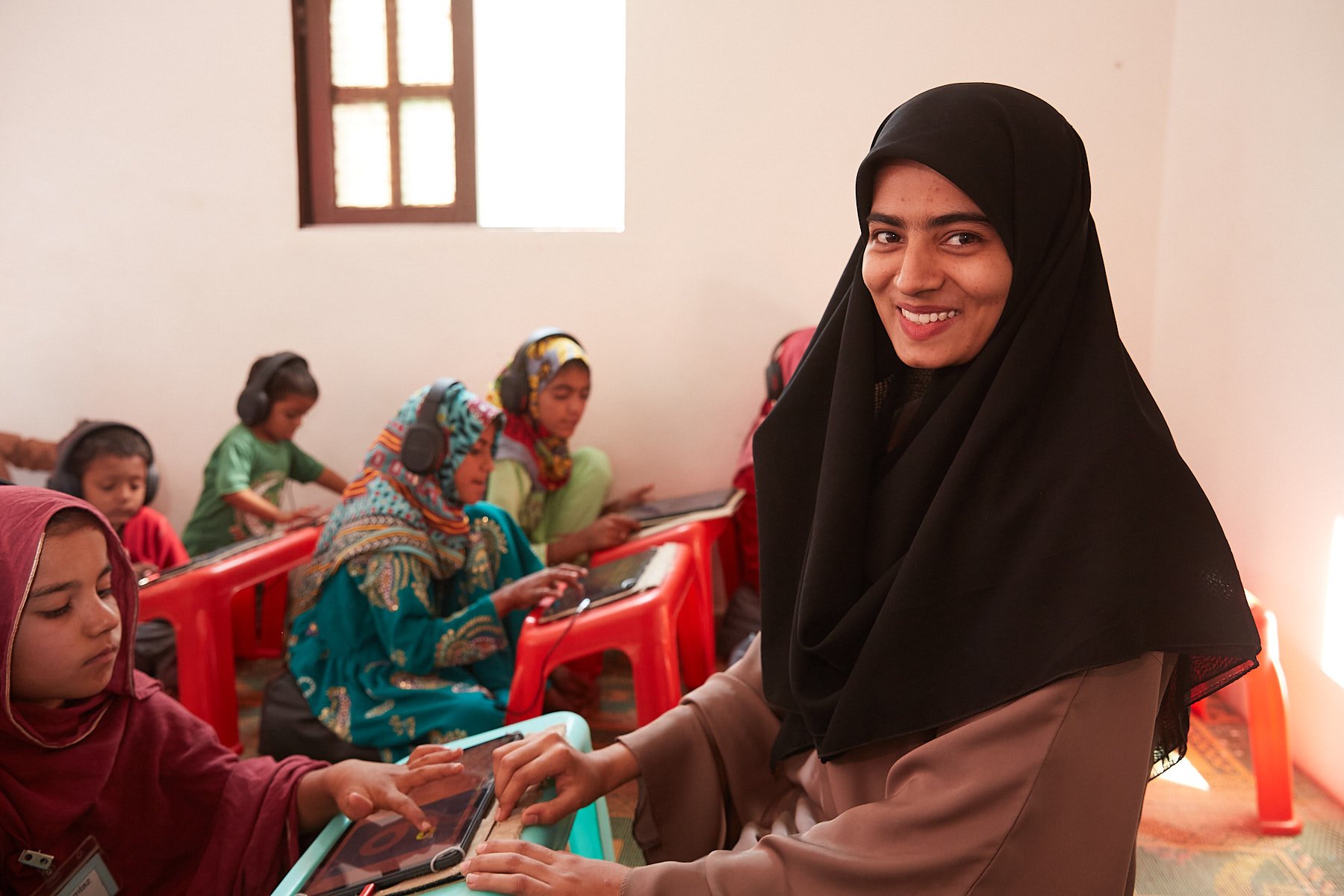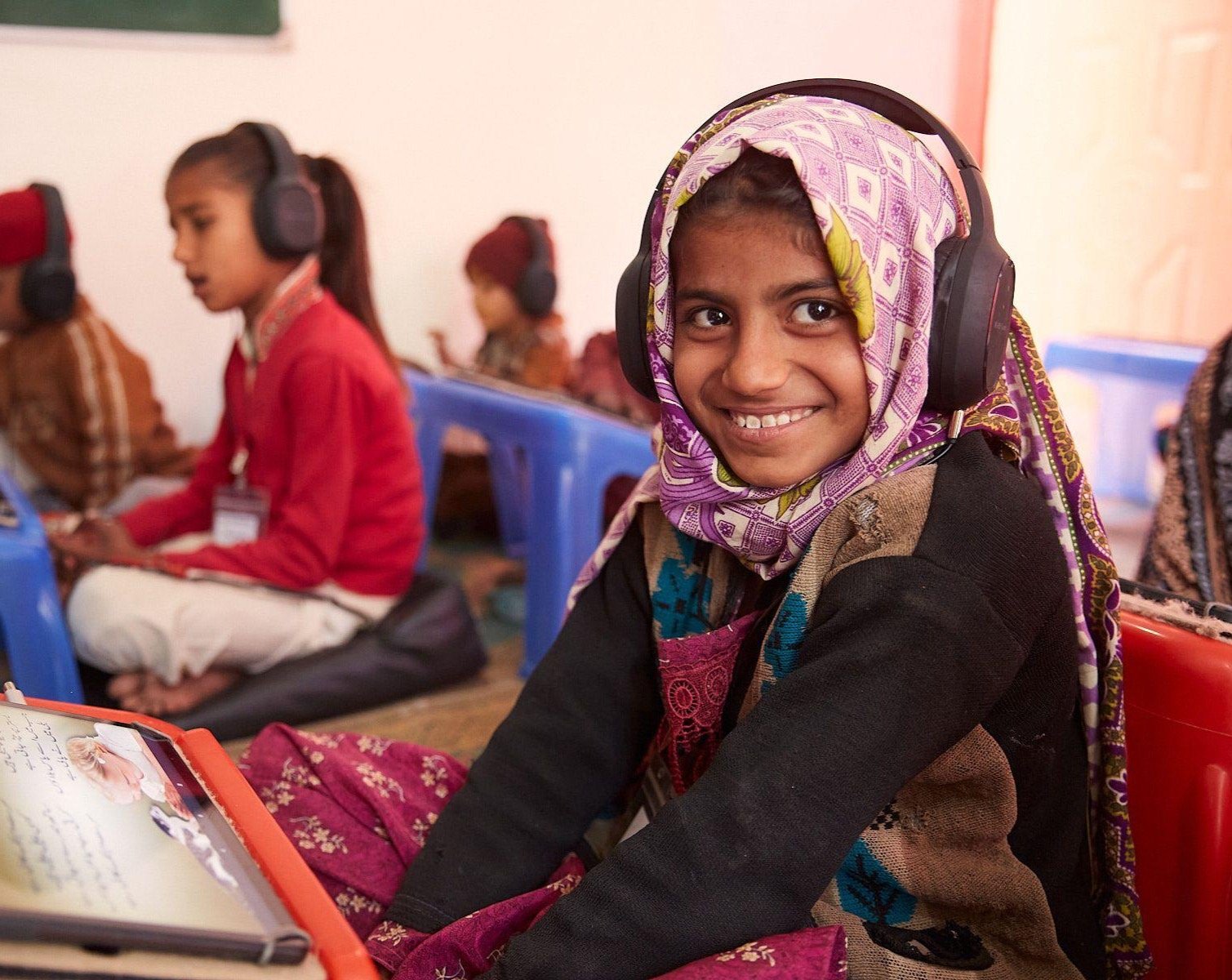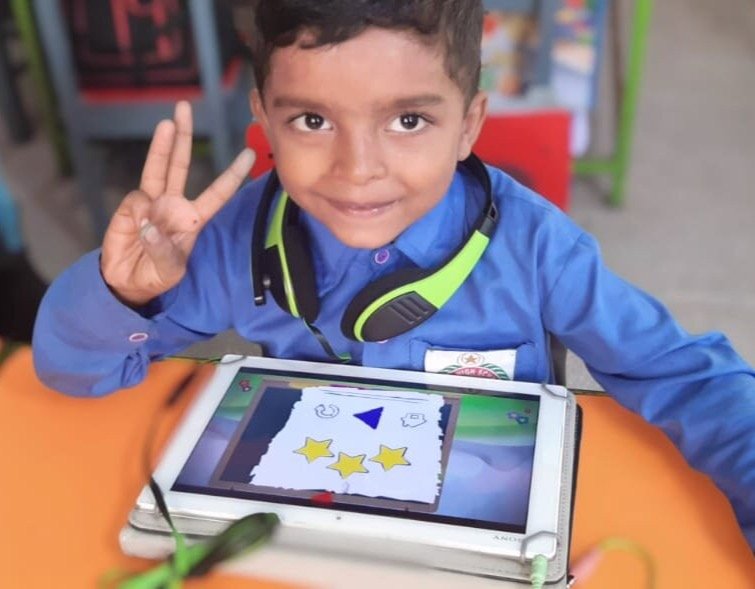
We eradicate illiteracy
The world is facing a profound educational crisis: one out of four people are functionally illiterate. The traditional education system -- while efficient in many developed countries -- falls far short in much of the developing world, with 80% of the population in poor countries experiencing learning poverty. The primary causes are a dire shortage of schools and teachers, as well as poor quality instruction in existing schools.
However, the good news is, we’ve developed a groundbreaking solution: leveraging digital technology. Digital education games, delivered via tablet or smartphone, offer an engaging and interactive way for students to learn, fostering self-directed learning and curiosity.
Benefits beyond literacy
We don’t stop at literacy. Our students gain essential 21st-century skills such as digital literacy, self-learning attitudes, and boosted confidence and motivation. These invaluable skills, often out of reach for underprivileged children, open up new horizons and opportunities.
By transforming education through technology, we’re not just teaching students to read and write—we’re equipping them with the tools they need to thrive in the modern world. Discover the digital learning programs we've developed to revolutionize education and make a lasting impact on the lives of countless children and communities worldwide.
Why it works
Our solutions are rapidly deployable and highly cost-effective.
They also significantly outperform traditional schooling in areas where access to quality education is scarce.
Additionally, they provide excellent accountability, which is a major issue in the developing world. With robust student and school tracking, we ensure that progress is monitored and measured, a crucial benefit in regions where accountability is often lacking.
Our Solutions
MicroSchools
We create one-room community-based schools equipped with tablets loaded with the world's best self-learning games, in a facilitated environment.
InSchool Program
Working with local partners and governmnents, we equip classrooms with tablets loaded with the world's best self-learning games.
AtHome Learning
Reaching families with internet connectivity and smartphones, we provide remote learning through our gamified applications.
263 Million
Out of school children, globally
(UNESCO)
80%
Learning poverty in poor countries globally





